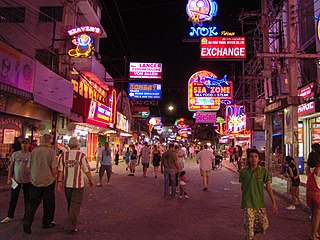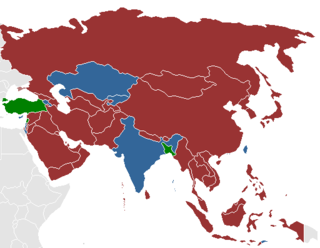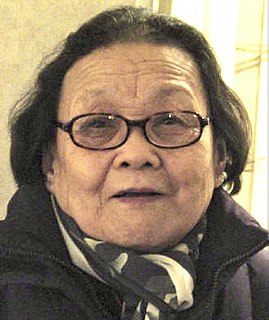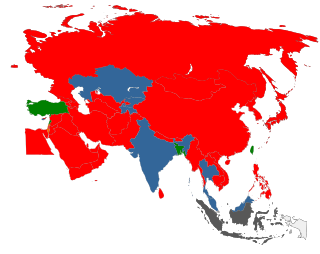Related Research Articles

Sex education, also known as sexual education, sexualityeducation or sex ed, is the instruction of issues relating to human sexuality, including emotional relations and responsibilities, human sexual anatomy, sexual activity, sexual reproduction, age of consent, reproductive health, reproductive rights, sexual health, safe sex and birth control. Sex education which includes all of these issues is known as comprehensive sex education, and is often opposed to abstinence-only sex education, which only focuses on sexual abstinence. Sex education may be provided by parents or caregivers or as part at school programs and public health campaigns. In some countries it is known as Relationships and Sexual health education.
Queer studies, sexual diversity studies, or LGBT studies is the education of topics relating to sexual orientation and gender identity usually focusing on lesbian, gay, bisexual, transgender, gender dysphoria, asexual, queer, questioning, intersex people and cultures.
CHF may refer to:

Prostitution in Thailand is not in itself illegal, but many of the activities associated with it are illegal. Because of police corruption and an economic reliance on prostitution dating back to the Vietnam War, it remains a significant presence in the country. It results from poverty, low levels of education and a lack of employment in rural areas. Prostitutes mostly come from the northeastern Isan region of Thailand, from ethnic minorities or from neighbouring countries, especially Myanmar and Laos. UNAIDS in 2019 estimated the total population of sex workers in Thailand to be 43,000.
Zhou Dan is a lawyer, scholar and activist in China. He lives in Shanghai, China. Zhou is a leading voice for rights of gay and lesbian people in mainland China. Writing with his real name about being gay on Chinese websites for years, he came out to a local newspaper about his gay identity in November 2003. Since then, his name has been from time to time mentioned in Chinese newspapers, magazines and television programs.

After taking power in 1949, the Chinese Communist Party (CCP) embarked upon a series of campaigns with the aim of eradicating prostitution from mainland China by the early 1960s. Since the loosening of government controls over society in the early 1980s, prostitution in mainland China not only has become more visible, but can now be found throughout both urban and rural areas. In spite of government efforts, prostitution has now developed to the extent that it comprises an industry, one that involves a great number of people and produces a considerable economic output. Prostitution has also become associated with a number of problems, including organized crime, government corruption, hypocrisy, and sexually transmitted diseases. For example, a CCP official who was a major provincial campaigner against corruption was removed from his post and expelled from the party after he was caught in a hotel room with a prostitute.

Prostitution is legal in India, but a number of related activities including soliciting, kerb crawling, owning or managing a brothel, prostitution in a hotel, child prostitution, pimping and pandering are illegal. There are, however, many brothels illegally operating in Indian cities including Mumbai, Delhi, Kolkata, Bangalore, and Chennai. UNAIDS estimate there were 657,829 prostitutes in the country as of 2016. Other unofficial estimates have calculated India has roughly 3–10 million prostitutes. India is widely regarded as having one of the world's largest commercial sex industry. It has emerged as a global hub of sex tourism, attracting sex tourists from wealthy countries. The sex industry in India is a multi-billion dollar one, and one of the fastest growing.

HIV/AIDS in India is an epidemic. The National AIDS Control Organisation (NACO) estimated that 2.14 million people lived with HIV/AIDS in India in 2017. Despite being home to the world's third-largest population of persons with HIV/AIDS, the AIDS prevalence rate in India is lower than that of many other countries. In 2016, India's AIDS prevalence rate stood at approximately 0.30%—the 80th highest in the world. Treatment of HIV/AIDS is primarily via a "drug cocktail" of antiretroviral drugs and education programs to help people avoid infection.

Taiwan's epidemic of HIV/AIDS began with the first case reported in December 1984. On 17 December 1990 the government promulgated the AIDS Prevention and Control Act. On 11 July 2007, the AIDS Prevention and Control Act was renamed the HIV Infection Control and Patient Rights Protection Act.
HIV/AIDS in China can be traced to an initial outbreak of the human immunodeficiency virus (HIV) first recognized in 1989 among injecting drug users along China's southern border. Figures from the Chinese Center for Disease Control and Prevention, World Health Organization, and UNAIDS estimate that there were 1.25 million people living with HIV/AIDS in China at the end of 2018, with 135,000 new infections from 2017. The reported incidence of HIV/AIDS in China is relatively low, but the Chinese government anticipates that the number of individuals infected annually will continue to increase.

Gao Yaojie is a Chinese gynecologist, academic, and AIDS activist in Zhengzhou, Henan province, China. Gao has been honored for her work by the United Nations and Western organizations, and had spent time under house arrest. Her split with the Chinese authority on the transmission and the seriousness of the AIDS epidemic in China hinders her further activities and resulted in her leaving for the United States in 2009. She is now living alone in uptown Manhattan, New York City.

The Durbar Mahila Samanwaya Committee, or simply Durbar, is a collective of 65,000 sex workers in West Bengal. Established on 15 February 1992, in Sonagachi, the largest red-light district in Kolkata, West Bengal, India with estimated 11,000 sex workers, Durbar has been working on women's rights and sex workers' rights advocacy, anti-human trafficking and HIV/AIDS prevention. The Durbar states that its aims are the challenging and altering of the barriers that form the everyday reality of sex workers' lives as they relate to their poverty or their ostracism. Durbar runs 51 free clinics for sex workers across West Bengal, with support from organisations such as the Ford Foundation and the National AIDS Control Organisation (NACO), who also help Durbar in its initiatives like networking, rights protection and creating alternative livelihood for sex workers.

Sexuality in China has undergone dramatic changes and this "sexual revolution" still continues today. Chinese sexual attitudes, behaviors, ideology, and relations have changed dramatically in the past four decades of reform and opening up of the country. Many of these changes have found expression in the public forum through a variety of behaviors and ideas. These include, but are not limited to the following cultural shifts: a separation of sex and marriage, such as pre- and extramarital sex; a separation of sex from love and child-bearing such as internet sex and one-night stands; an increase in observable sexual diversity such as homo- and bisexual behavior and fetishism; an increase in socially acceptable displays and behaviors of female sexual desire; a boom in the sex industry; and a more open discussion of sex topics, including sex studies at colleges, media reports, formal publications, online information, extensive public health education, and public displays of affection.
Prostitution in Ecuador is legal and regulated, as long as the prostitute is over the age of 18, registered, and works from a licensed brothel. Prostitution is widespread throughout the country. Many brothels and prostitutes operate outside the regulatory system and the regulations have been less strictly enforced in recent years. 25,000 prostitutes were registered in the year 2000. In 2007 it was estimated that 70% of the prostitutes in the country were from Colombia. The country attracts Colombian prostitutes as the currency is the US$ rather than the unstable Colombian peso. UNAIDS estimate there to be 35,000 prostitutes in the country.

Prostitution in Pakistan is a taboo culture of sex-trade that exists as an open secret but illegal. Prostitution is largely based in organisational setups like brothels or furthered by individual call girls.

LGBT sex education is a sex education program within a school, university, or community center that addresses prominent sexual health topics among LGBT groups. Within schools, topics on LGBT sexual health are usually integrated into the general sex education courses.
The Naz Foundation (India) Trust is a non-governmental organisation (NGO) in that country that works on HIV/AIDS and sexual health. It is based in the Indian capital of New Delhi.
Udaan Trust is an Indian non-governmental organisation operating in the state of Maharashtra. It is the first HIV/AIDS organisation founded by homosexuals living with HIV/AIDS. Udaan focuses on issues of sexual health within the homosexual and transgender communities, particularly with regard to the prevention of HIV/AIDS. In order to accomplish this, Udaan provides services such as condom distribution, sex education, counseling, and medical services to at-risk populations.
The history of lesbian, gay, and bisexual people in China spans thousands of years. Unlike the histories of European and European-ruled polities in which Christianity formed the core of heavily anti-LGBT laws until recent times, non-heterosexual states of being were historically treated with far less animosity in historic Chinese states. For a period of the modern history of both the Republic of China and People's Republic of China in the 20th century, LGBT people received more stringent legal regulations regarding their orientations, with restrictions being gradually eased by the beginning of the 21st century. However, activism for LGBT rights in both countries has been slow in development due to societal sentiment and government inaction.

Mumbai, is a city in India which contains the neighborhood of Kamathipura, one of the largest red-light districts in Asia. India is regarded as having one of the largest commercial sex trades globally. These neighborhoods are so large and popular that Mumbai has been called the "ultimate destination" for sex tourism. The red-light districts or lal bazaars in Mumbai are inhabited by thousands of sex workers including women, men, children, and transgender people.
References
- ↑ Harper, Damian; Steve Fallon; Katja Gaskell; Julie Grundvig; Carolyn Heller; Thomas Huhti; Bradley Mayhew (2005). China . Lonely Planet. p. 54. ISBN 1-74059-687-0.
It is especially active in Hénán Province, working with students whose parents are dying or have died of AIDS.
- ↑ Malti-Douglas, Fedwa (2007). Encyclopedia of Sex and Gender. Vol. 1. Macmillan Reference. p. 281. ISBN 978-0-02-865961-9 . Retrieved 13 January 2009.
In 2004 Fudan University's medical college, in cooperation with the Chi Heng Foundation, organized the mainland's first class on homosexuality. The graduate health course attracted considerable media attention, despite enrolling only three students.
- ↑ United Nations Economic and Social Commission for Asia and the Pacific, Economic and Social Commission for Asia and the Pacific (2003). "HIV/AIDS: Prevention, Care and Support : Stories from the Community". United Nations Publications. p. 2012. ISBN 92-1-120165-9 . Retrieved 13 January 2009.
- ↑ Locked Doors: The Human Rights of People Living with HIV/AIDS in China. Human Rights Watch. 2003. p. 73.
Chi Heng works with saunas and brothel owners to hold HIV/AIDS education projects and to distribute AIDS information, as well as doing one-on-one counseling and education with sex workers.